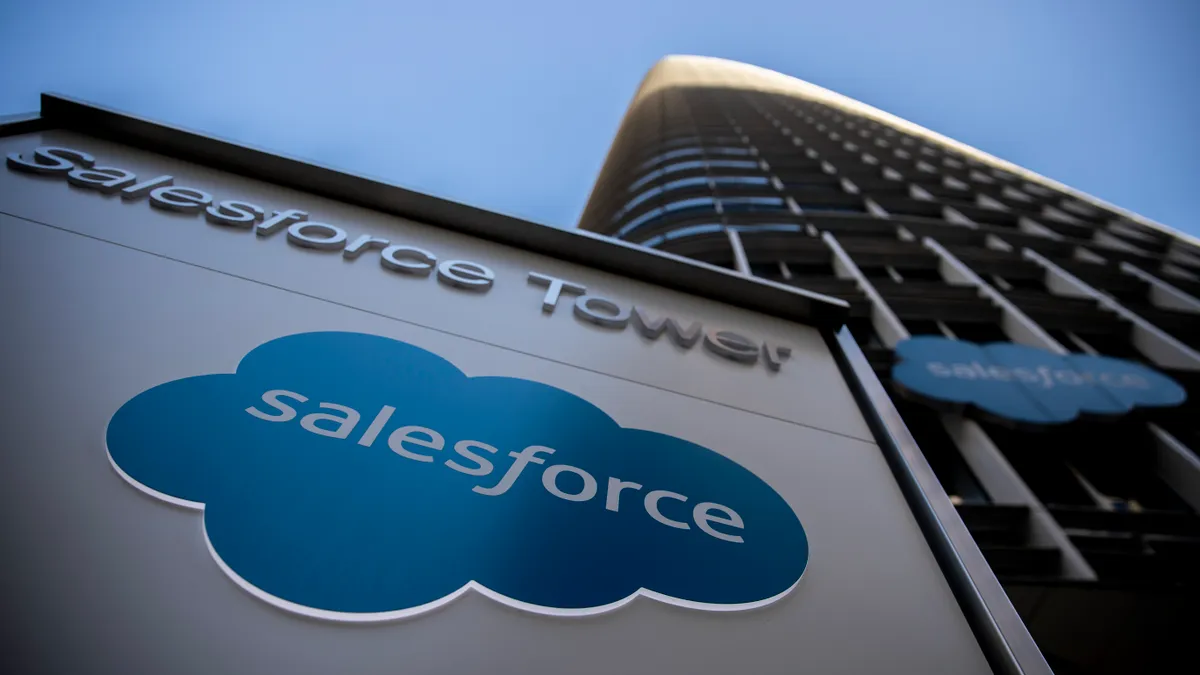Dive Brief:
-
CFOs are largely in favor of a return to the office, but they intend to retain remote-work related changes that have resulted in lower costs, panelists at this week’s Wall Street Journal’s CFO Network Summit said.
-
The CFOs of AT&T, Estée Lauder and Salesforce said Monday they’re helping their respective companies prepare for the new normal by investing in digital infrastructure and reassessing their real estate needs.
-
Another vital piece of crisis management, the panelists said, is recognizing their role, as CFOs, to be steady, unflappable leaders who encourage a culture of mission-driven work.
Dive Insight:
“Necessity is the mother of invention,” CFO of AT&T Pascal Desroches said Monday. “We found ourselves in the midst of a pandemic, and we're a company that was vital in keeping the country connected.” The telecom giant will shutter a handful of its storefronts to prioritize its digital channels and allow in-store employees to exercise a hybrid work model, he said.
Desroches and his team realized the company could serve customers remotely in a much greater capacity than previously thought.
AT&T used to send technical support specialists to customers’ homes to triage problems, but, in 2020, found similar success with remote support. Remote support, he said, has better diagnostic tools.
Historically, AT&T has relied on retail to drive most of its sales. “But we think now, through technology, we can drive a lot of the sales process in a way customers prefer,” Desrcoches said. “And, like most companies, we have real estate savings and new ways of working [that] are a real opportunity as we move forward.”
The move to a digital-first approach will create a more efficient experience for customers and a more enriching experience for employees, Desroches added.
Estée Lauder, another brand that capitalized largely on in-person transactions before the pandemic, responded by increasing its e-commerce investments to support virtual sales, CFO Tracey Travis said. She expects the cosmetic giant’s digital sales offerings to remain crucial to its business even after stores reopen.
Like AT&T, Salesforce intends to bring employees back to its offices, CFO Amy Weaver said, noting that an internal survey found most employees to favor a hybrid approach.
“We have beautiful real estate around the world, which I love, but I love it more when it is fully occupied,” Weaver said. The company’s goal this year, she added, is to figure out how many days per week in the office people will commit to, and how the company can, in turn, maximize its physical space.
Another vital piece of crisis management, the panelists said, is recognizing their role, as CFOs, to be steady, unflappable leaders who encourage a culture of mission-driven work.
“The role we all play as CFOs [means] when a crisis like this hits, it's important to be that voice of calm, that pragmatic voice that has the playbook,” Travis said.
When the pandemic first hit, Travis focused on liquidity and maintaining a strong balance sheet for the cosmetics giant, which she said allowed it to quickly access capital and set its sights on recovery.
“I think the lesson is [CFOs must] calm the organization by being able to understand what needs to be executed, being that strong partner to the leadership team, and being the voice of confidence when there's so much uncertainty,” she said.
In addition to ensuring its employees have a safe work environment, AT&T also must ensure the world stays connected, Desroches said.
“The pandemic demonstrated to me that most employees, at their core, are really mission-driven, and they rally to the cause,” he said. “They see the importance of their roles in something like this, and they dive in. They did that, and it was really quite motivating to see how, not only were we able to transition a lot of our workforce to remote, but those in the office helped other companies and consumers stay connected. It was really encouraging."













